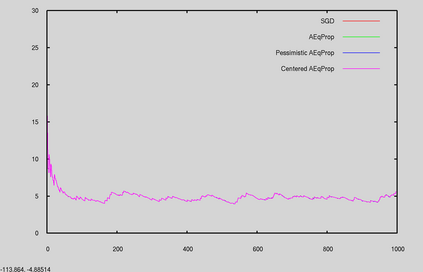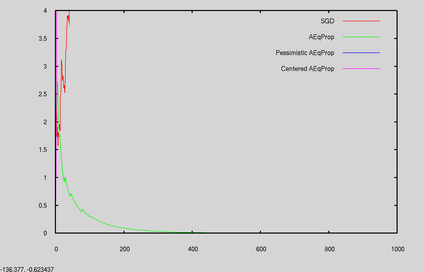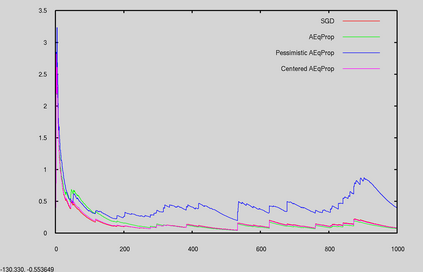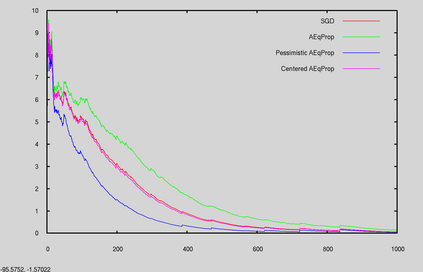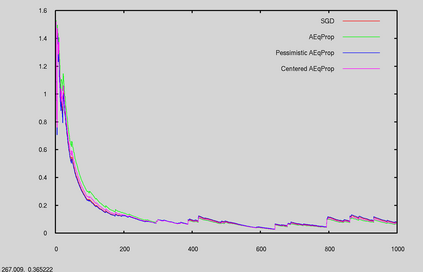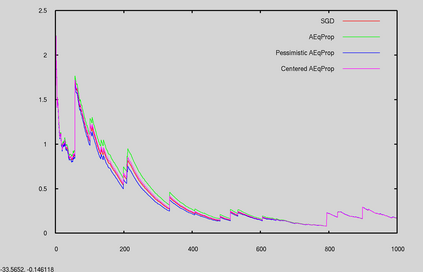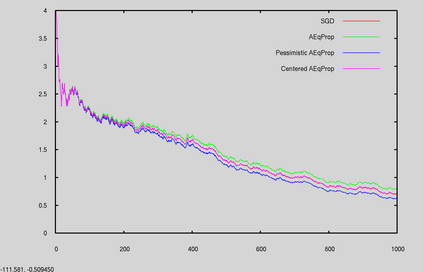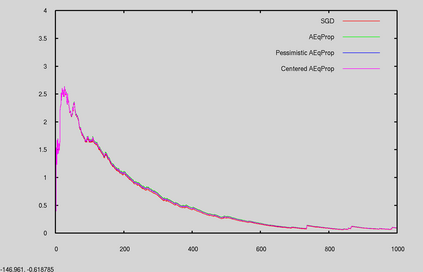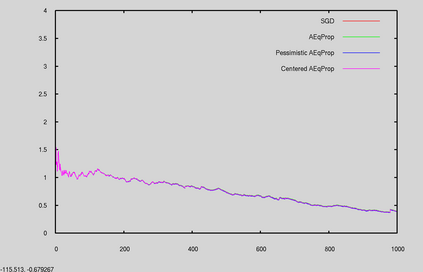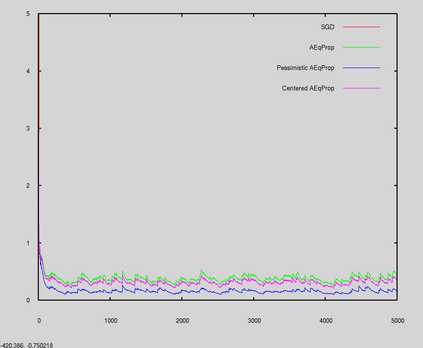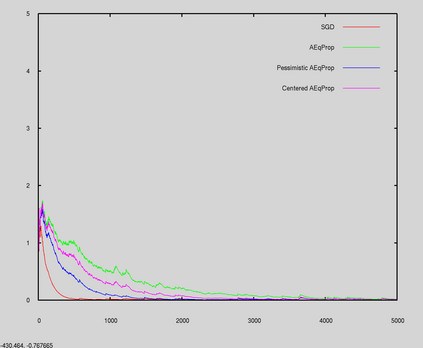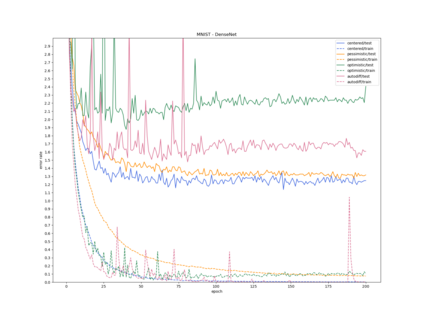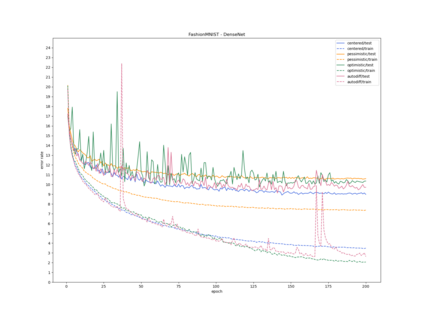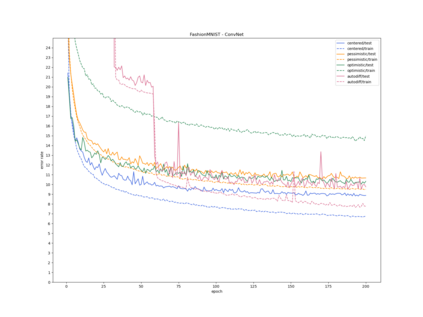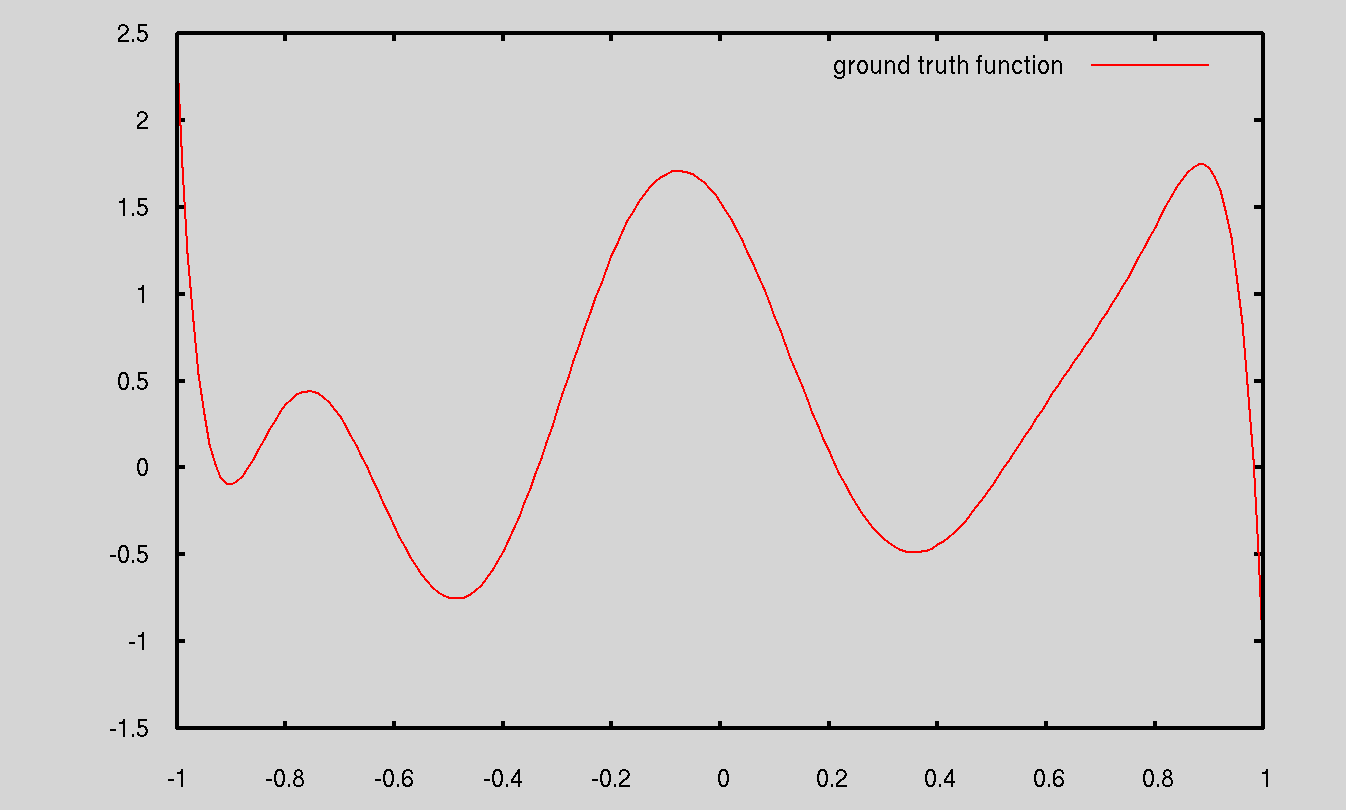This work establishes that a physical system can perform statistical learning without gradient computations, via an Agnostic Equilibrium Propagation (Aeqprop) procedure that combines energy minimization, homeostatic control, and nudging towards the correct response. In Aeqprop, the specifics of the system do not have to be known: the procedure is based only on external manipulations, and produces a stochastic gradient descent without explicit gradient computations. Thanks to nudging, the system performs a true, order-one gradient step for each training sample, in contrast with order-zero methods like reinforcement or evolutionary strategies, which rely on trial and error. This procedure considerably widens the range of potential hardware for statistical learning to any system with enough controllable parameters, even if the details of the system are poorly known. Aeqprop also establishes that in natural (bio)physical systems, genuine gradient-based statistical learning may result from generic, relatively simple mechanisms, without backpropagation and its requirement for analytic knowledge of partial derivatives.
翻译:这项工作规定,物理系统可以通过将能源最小化、家庭主控和对准反应相结合的Aeqoprop(Aeqoprop)程序,在不进行梯度计算的情况下进行统计学习。 在Aeqprop, 系统的具体细节不必为人所知: 程序仅以外部操作为基础, 产生随机梯度梯度下降, 而没有明显的梯度计算。 由于裸体, 系统对每个培训样本都执行真实的、 顺序一梯度步骤, 而不是以试验和错误为依托的强化或进化战略等零级方法。 这一程序将统计学习的潜在硬件范围大大扩大到任何具有足够可控参数的系统, 即使系统的细节不为人所知。 Aeqeprop也规定,在自然(生物)物理系统中, 真正的梯度统计学习可能来自一般的、相对简单的机制, 不作反向调整, 也不要求分析部分衍生物。


